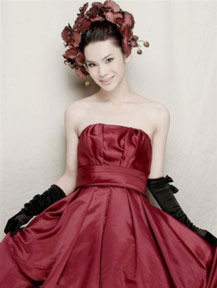Society
Cross-dresser on TV sparks controversy
By Gan Tian (China Daily)
Updated: 2010-05-22 08:49
 |
Large Medium Small |
|
|
Liu Zhu, 19, from Sichuan province, who has been nicknamed "pseudo-girl" by his fans, has risen to stardom overnight with his cross-dressing performance in the competition.
Though Liu's appearance has boosted the program's ratings and popularity, it has been reported that the program might have to vote him out during the show on Saturday night.
The Beijing Youth Daily report said SARFT demands the country's TV programs to promote positive and mainstream cultures, while the "pseudo-girl" and cross-dressing phenomenon, as part of a marginal culture, should be checked.
| ||||
The channel issued a statement on Friday, saying, "SARFT has not given any opinion on Liu Zhu.
"There is still one competition on the weekend. Whether he can make it to the top 300 depends on his musical talent."
Hunan TV's spokesman Li Hao confirmed SARFT has not asked for Liu to be voted off the show.
Meanwhile, Liu told China Daily he is busy preparing for Saturday night's competition and, as usual, he will sing self-written and self-composed songs.
"I don't know whether news of the ban is true or not. The only thing I can do now is show my best to the audience," Liu said.
"I have faced a lot of criticism about the way I look, but all I can do is speak less and do more."
Liu said he would quit the reality show if he was asked to dress up like a man for the camera.
He said he had been dressing up in women's clothing since high school, adding that it was his "true identity".
"I used to be very confused with my identity, but now all the problems have been solved."
Happy Boys' Chengdu division spokesman Zhao Zhe said: "Liu does not have any psychological burden about his identity, but like every other competitor, he too is under great pressure to perform."
Happy Boys is not the only show in the country that has earned the public's wrath for objectionable content.
Luo Yufeng, an Internet star who shot to fame with her bold remarks, was struck with eggs at a live broadcast of Dragon TV's China Talent Show recently.
The show's director Jin Lei, however, maintained they "refuse competitors who act strange and inappropriately on the program just to attract attention".
Qinghai TV's talent show Blossoming Flowers is also under fire for staging a young female student named Diao Yang to dress up like a bunny girl.
The show has also had its contestants walk in a public square wearing bikinis.
Zhang Zhihua, a lecturer at the TV and Journalism School at the Communication University of China, said a lack of a mature subscribe-and-watch system in the country is to blame for the current "bizarre" television content.
"China does not have a mature paid TV environment, which forces most of the satellite channels to rely on advertising revenue, which is only influenced by audience ratings."
At the moment, Happy Boys' audience rating is 2.94 percent.
"In order to increase ratings, many shows try to challenge the audience by presenting subcultures and vulgarity, which is why SARFT needs to set up regulations from time to time."
Zhang assured that the average viewer's taste has not stooped to a new low.
Zhang added that though television programs need to make profits, they should still shoulder the responsibility of presenting positive ideas to the public.

